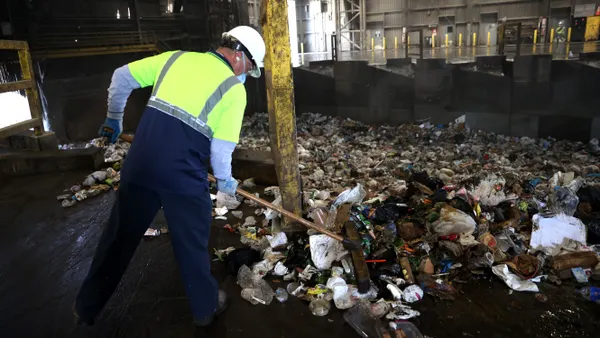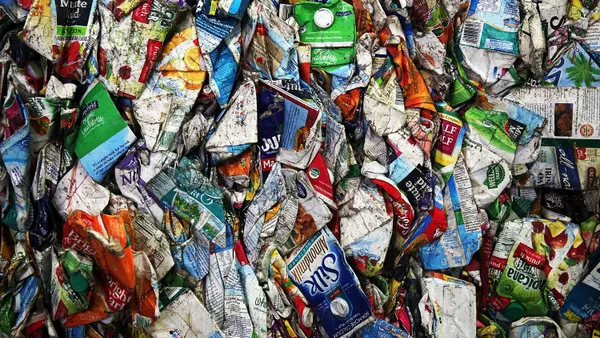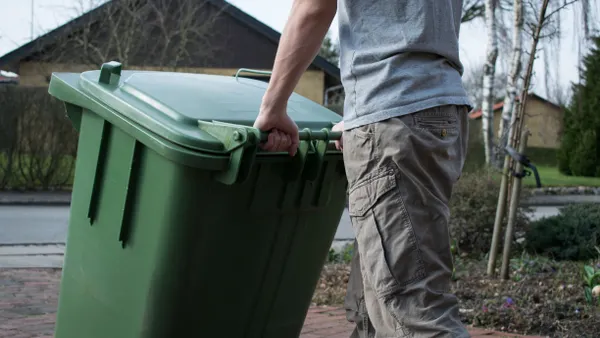Dive Brief:
- Oregon, Ohio, a Toledo suburb, has decided to suspend its curbside recycling program for up to two years, according to The Press. Leaders reportedly have noted that a portion of the material being collected is already going to landfill.
- The city has two years left on a five-year contract with Waste Management, but the hauler has requested a rate increase due to current market conditions, namely China's regulatory measures. Oregon projects that it could eventually cost $11,000 more per month to recycle under the current contract terms.
- During the suspension, the city will launch a public education campaign to encourage better curbside recycling practices to reduce contamination. Leaders hope to rebid a recycling contract in two years under an improved municipal program. Residents will be able to bring aluminum and cardboard materials at an existing drop-off facility.
Dive Insight:
While some municipalities have been quick to blame China for the entire state of the global recycling markets, the Oregon example shines a spotlight on the complexity of the situation and that other players are involved. Oregon admitted what some other municipalities are hesitant to utter: U.S. consumers play a role, too. For years there have been calls to reduce contamination but the situation now has come to a head.
The Toledo area in particular has been seeking solutions to mitigate curbside contamination. Toledo leaders admitted last year that about 37% of the 22,000 tons of recyclables collected annually are deemed too contaminated for processing and instead get sent to landfill. This year, an audit cited a 44% contamination level — although the city disputes that number — and the city deployed 10 additional recycling bin inspectors to identify those who are not in compliance with collection program guidelines and issue warnings.
The municipal leaders' actions are somewhat unique in that they've set a specific timetable for suspension, while many others in various states have more often labeled similar moves as "indefinite." Plus, while other municipalities have been quiet about distinct measures they're taking to ease the problem, beyond simply searching for new markets, Oregon leaders stated upfront that they're launching an education campaign.
Ohio's Environmental Protection Agency is also said to be working on a new education campaign in collaboration with The Recycling Partnership, so it's possible there could be additional resources available for smaller municipalities such as Oregon in the future.











